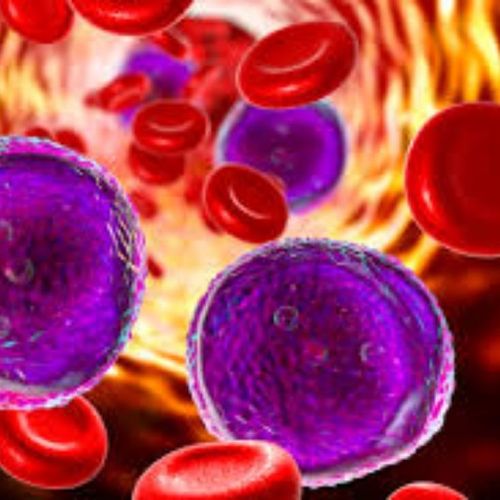For years, doctors have been puzzled by N follicular lymphoma, a deadly blood cancer. Although the tumor cells of this disease appear the same when viewed under the microscope, some patients live for a much longer period of time than others.
Now, researchers believe they have solved that mystery.
Genetic differences-not in lymphoma cells, but in immune cells surrounding the tumor may determine how aggressive a particular case of follicular lymphoma is, they say.
Background to the Study
Research into controlling follicular lymphoma has yet to achieve the success seen in other blood cancers, says lead researcher Dr. Louis M. Staudt of the National Cancer Institute's Center Institute's Center for Cancer Research.
"Chemotherapy isn't able to prolong the survival of these patients," he says. "It's given to them, but it's not curative."
But oncologists have long noticed that some patients who have follicular lymphoma die within two or three years of their diagnosis, while others live with the disease for 20 years or more.
Genetic comparisons of aggressive and less aggressive cancers have so far turned up no major differences, so Staudt and his team decided to investigate the genetics of immune cells that live in the immediate vicinity of the lymphoma.
The Study
Examining tissue biopsies from 191, patients, the researchers found that "it was the [genetic] character of the immune cells that was dictating whether you had a very slow growing form of follicular lymphoma or a more rapid form," Staudt explains.
He says the finding makes sense because, in very rare cases, follicular lymphoma will simply disappear on its own. "In oncology, that's taken as evidence that a tumor can be successfully fought off by the immune system," Staudt says
Implications
The finding should help open the door to new treatments for a disease for which there is currently no cure.
The next step is to discover how the immune cells of the patients who have slower progressing cancers are keeping follicular lymphoma at bay.
According to Staudt, one theory holds that the immune cells may simply be fighting off the cancer within the lymph node. Another hypothesis is that neighboring immune cells somehow allow cancer cells to survive-but only within the confines of the lymph node.
"'What everyone is working on right now, and what holds a lot of promise, are therapies based on manipulating the immune system," says Staudt.
He says studies have already shown that treatment with immune-based anti-cancer vaccines does result in remission in some patients.
Fine-Tuning Prognoses
The study findings should also make it easier for doctors to provide patients with more accurate prognoses, says Ralf Kuppers of the University of Duisberg-Essen in Germany.
"This may help in the decision of how to treat the patient," he adds. "For example, if a patient has a bad prognosis, one might decide on a more aggressive treatment, because standard treatment may have little chance to increase the life expectancy of the patient."
A more accurate prognosis should also address patients' concerns, Staudt says. "Imagine that you have a lump. Of course, you're very concerned, and it comes back [from a biopsy] with a diagnosis of follicular lymphoma. But in the next sentence, your doctor says, 'But the median survival of patients with your type of follicular lymphoma is between 10.8 and 13.6 years.' That's going to give you a whole different outlook on your disease."
Follicular Lymphoma Basics
Follicular lymphoma is a type of white blood cell cancer from the non-Hodgkin's lymphoma family of lymph node malignancies. Follicular lymphomas involve the uncontrolled growth of a specific type of immune white blood cell, called B lymphocytes. The disease makes up approximately 20% of all non-Hodgkin's lymphomas, with an incidence rate of approximately six cases per 100,000 people annually, experts say.
